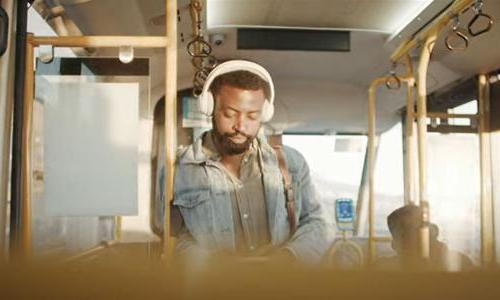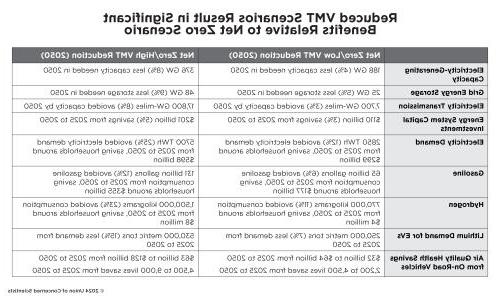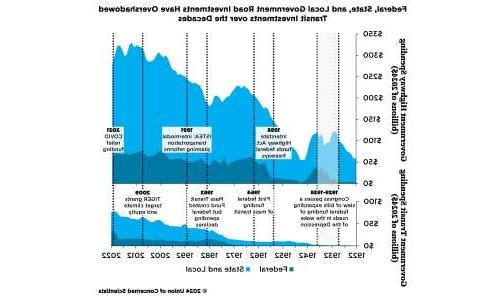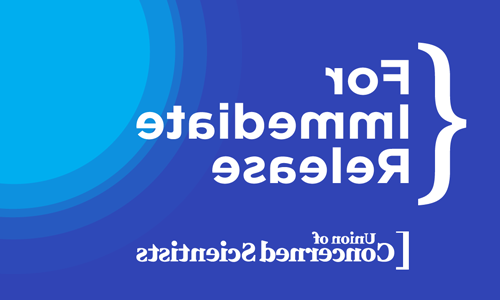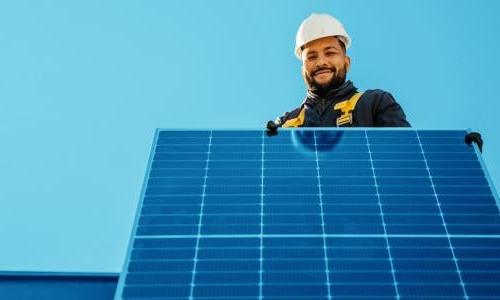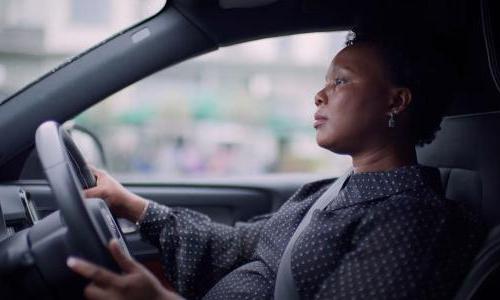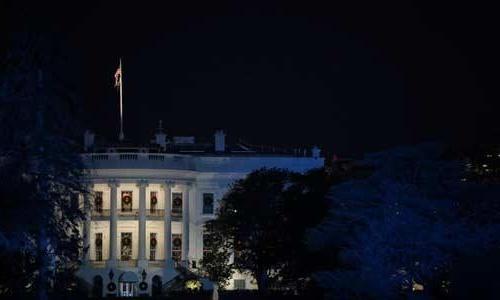More transportation options such as transit, walking and biking are good for the environment, economy, and social equity. Yet, the system we currently have revolves around car dependence, bolstered by outdated policies and industry lobbying.
New UCS analysis finds that:
-
A system with improved transportation options and reduced driving could save up to $201 billion in energy infrastructure and $128 billion in public health costs through 2050, presenting a more effective climate solution than the current car-dependent model.
-
The auto and oil industries have a vested interest in car dependence, currently receiving more than 75 percent of public and private transportation spending and have lobbied for decades to prioritize cars over a more complete and affordable set of transportation options.
-
Science-based policies that prioritize more transportation choices align with community-based solutions where local advocates have long fought for a transportation system that prioritizes people over industry interests.
Freedom to Move
This is an online version of the executive summary. The full executive summary can be downloaded here
No matter where we come from or the color of our skin, most of us want to stay connected with loved ones, be healthy, and make a better future for our families. We want strong and vibrant communities that benefit and prosper from bringing together people from different places, of different races, and with different backgrounds.
To be a place of freedom for all, this country must invest in clean, abundant transportation choices and prioritize convenience and efficiency in land use planning. In cities, suburbs, and rural areas, investing in transit, walking, rolling, and biking can help unlock this freedom, especially for the 30 percent of people in the United States who do not drive.
Yet the highway lobby, representing auto, fossil fuel, and road-building industries, constrains our options and profits handsomely while doing so. They have rigged the rules to maintain the current car-dependent system that relies on burdensome household transportation costs.
A Union of Concerned Scientists (UCS) analysis shows that a transportation system that gives everyone more transportation choices will be more equitable, save trillions of dollars, and fight climate change---and we can make a big, meaningful impact with the technologies available to us today. We must advance science-based policies that expand transportation options, consider transportation decisions through an equity and climate lens, and open transportation planning processes to those who have long not had a seat at the table. Doing so would ensure that we all get where we need to go, for generations to come.
More Transportation Choices Are Key to the Climate Transition
Transportation is currently the biggest contributor to heat-trapping emissions in the United States, and the nation has the highest-emitting transportation system in the world. UCS quantified the economic and health benefits of a transportation system where, thanks to increased transportation options and smarter land use planning, the need to drive private automobiles declines, which is key to the climate transition along with vehicle electrification and petroleum phaseout. Previous UCS analysis has shown that pathways exist to meeting US climate targets of net zero heat-trapping emissions by 2050, but they require ramping up deployment of clean energy technologies and phasing out fossil fuels. In turn, these scenarios result in near-term energy system savings and only modest long-term costs, which is dwarfed by trillions of dollars in public health benefits and avoided climate damages.
Providing more transportation options and more convenient land use, thereby reducing transportation demand, would make this decarbonization transition easier. It would be more affordable, less resource intensive, less energy intensive, less polluting, and help us fare better at meeting US climate targets (Table ES-1). Visionary but feasible changes in our transportation system could save over $201 billion in grid infrastructure buildout, up to $128 billion in public health costs, and $5.9 trillion in vehicle ownership costs compared to a scenario in which the United States meets climate targets but driving continues to increase. UCS found that a more complete set of transportation options is a more effective climate solution than maintaining a car-dependent transportation system.
UCS compared the following scenarios:
-
Net Zero. This scenario represents a least-cost mix of technologies and resources for meeting US climate targets and the US Energy Information Administration's projected demand for energy services, including for vehicle miles traveled (VMT) growth, under a limited set of technology and resource constraints.
-
Net Zero/Low VMT Reduction. This scenario also meets US climate targets but with slight decreases in VMT starting in 2023 that represent a 20 percent reduction of light-duty VMT in 2050 compared to the Net Zero scenario, which translates to a 3 percent decrease in total light-duty VMT from 2023 to 2050. This scenario is associated with a modest increase in transportation options such as transit, biking, and walking.
-
Net Zero/High VMT Reduction. This scenario is more ambitious in that the VMT reduction is twice that of the Net Zero/Low VMT Reduction scenario, leading to a 27 percent decrease in total light-duty VMT from 2023 to 2050, which is roughly within the range of VMT goals for multiple states. This scenario is associated with a drastic increase in transportation options such as transit, biking, and walking.
Car-Dependence Is Not an Accident
To understand why the United States has an unsustainable, expensive, and inequitable car-dependent transportation system today, UCS traced the history and politics of transportation funding. Since the 1800s, a series of policies influenced by a powerful constellation of industries has steered enormous subsidies to road construction while largely neglecting other transportation options, such as public transit. Many of these policies and practices are upheld by outdated science and engineering practices that prioritize cars over all other options, leading to more driving over longer distances merely to accomplish the same things.
The public pays for transportation infrastructure via government funding from various sources, but a broader look at transportation spending shows that public investment is dwarfed by private expenditure. In 2021, people, businesses, and governments in the United States spent over $2.2 trillion, or over $17,000 per household, on transportation. Over 75 percent of this represents the high costs of private vehicle ownership (Figure ES-1). This money overwhelmingly flows to the auto and oil industries---the same special interests that spend over $100 million annually to lobby and advocate against transparency and accountability in transportation planning and against funding for public transit. We deserve a transportation system that works for all of us, not for vested industry interests.
When Some of Us Can't Get Around, We All Suffer
Transportation is supposed to connect, not divide. But the car-dependent US transportation system has produced stark injustices based on race, income, age, ability, gender, sexuality, Indigeneity, immigration status, and car access.
While special interests profit from car dependence, everyday people in the United States bear the costs, with the worst impacts falling on people of color and people with low incomes. UCS estimates that people spend nearly half their income on housing and transportation on average, and 60 percent of people live in neighborhoods where housing and transportation costs are unaffordable. People of color are 14 percent more likely to live in such neighborhoods and pay 5 percent more of their income on housing and transportation than White people do.
Science-based policy rooted in getting people around is on the same side as people who have been fighting in their communities for decades for a better transportation system. UCS worked with three grassroots groups to highlight their visions of transportation systems that better serve communities. In Boston, Alternatives for Community and Environment works for improved transit service, affordability, and environmental justice by organizing community members, youth, and transit riders. In rural Utah, Campaign for Transit in the 435 advocates for options ranging from intercity buses to rail to dial-a-ride services for nondrivers around the state. In Shreveport, Louisiana, Allendale Strong advocates for a business boulevard and has built community against decades of disinvestment spurred by a proposed highway through their historic Black neighborhood.
The current highway-centered status of the United States is not an accident but rather a direct result of policy decisions made over many years and pushed by lobbying industries. Now is the time to fight for policies that support a transportation system that truly centers the communities it is meant to serve.
Recommendations
Over decades, policymakers actively advanced policies that favored car-dependent infrastructure that has been upheld by outdated science and engineering practices, influenced by self-interested highway lobby advocacy, and ultimately neglectful of community needs. The resulting transportation system prioritizes a single mode of travel while dividing us between transportation haves and have-nots. UCS recommends expanding transportation options, ensuring decisionmaking occurs through an equity and climate lens, and altering decisionmaking processes to be more accessible, democratic, and equitable as crucial ways to create a clean, prosperous, and just future:
-
Invest in a complete set of transportation options for a system that offers abundant access to everywhere we need to go and promotes economically thriving communities in both urban and rural areas. This means investing in networks of safe sidewalks for pedestrians, paths for biking and micromobility, and frequent, wide-ranging, affordable, and clean public transportation. These efforts depend on promoting land use changes that allow people to live near high-quality transit without displacement, dismantling structural racism in community safety, and ensuring good jobs with high labor standards.
-
Prioritize transportation projects in rational ways, including the extent to which they help achieve climate goals, reduce harm to communities experiencing the greatest impacts, and improve access for those who need it the most. This will necessarily mean meeting more rigorous standards for expensive, high-polluting highway expansion projects that commit us to high maintenance costs. Instead, we must first address the backlog of existing infrastructure maintenance. Also, state departments of transportation and metropolitan planning organizations must be accountable and transparent in their decisionmaking on what gets built.
-
Make transportation decisionmaking processes representative, and meaningfully engage the people and communities most affected by proposed projects. For decades, the auto, fossil fuel, and road-building industries have profited from excessive highway expansion and denied us choice in transportation. All of us, whether Black, brown, or White, whether US-born or immigrant, deserve to have a seat at the table to ensure transportation projects truly benefit our communities.
It is up to us all to fight for a future that will save us trillions of dollars as we build a clean-energy future and a transportation system that connects without the expensive household costs that translate into industry profits. For decades, many of us have fought harmful freeways, pushed for increased transit service, and won major climate actions. Together, we can advance science-based policies that award us the freedom to get where we need and want to go, for generations to come.
This is an online version of the executive summary. The full executive summary can be downloaded here
Downloads
Citation
Shen, Kevin X., Dave Cooke, Emmanuell De Barros, Mike Christensen, Kim Mitchell, and Dorothy Wiley. 2024. Freedom to Move: Investing in Transportation Choices for a Clean, Prosperous, and Just Future. Cambridge, MA: Union of Concerned Scientists. http://5dce.051857.com/resources/freedom-move
